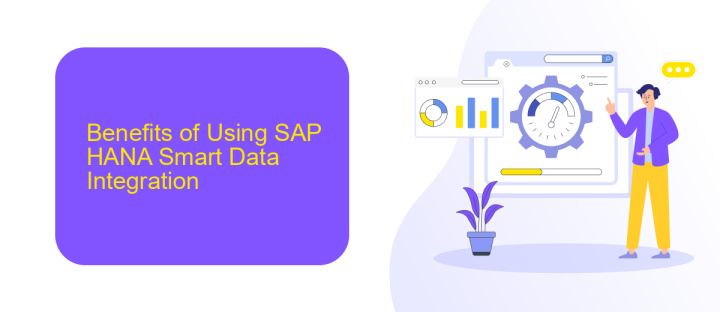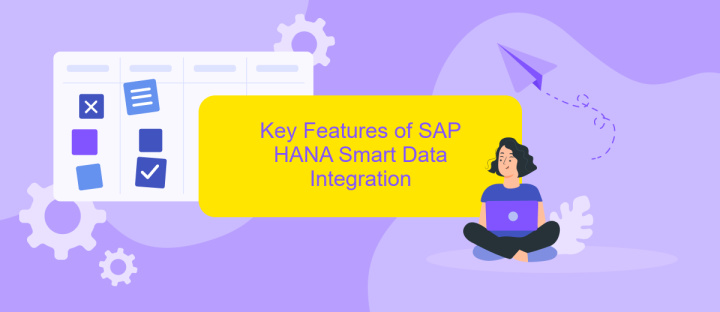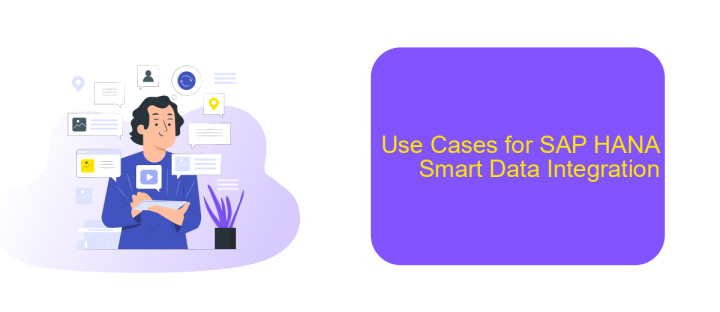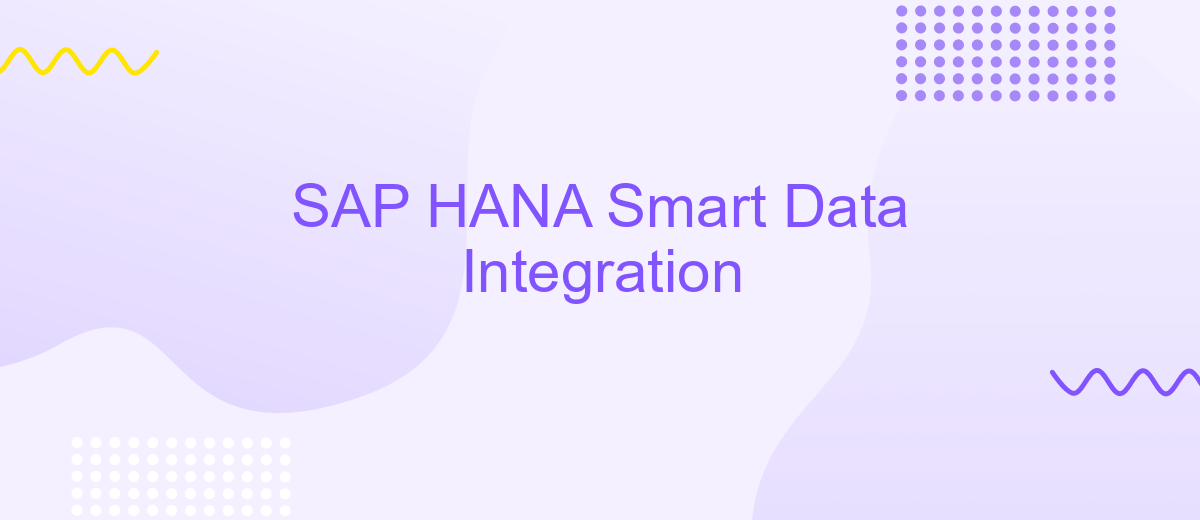SAP HANA Smart Data Integration
SAP HANA Smart Data Integration (SDI) is a powerful tool that enables real-time data integration and transformation across diverse data sources. By leveraging SDI, organizations can seamlessly connect, replicate, and transform data, ensuring high-quality, consistent information for analytics and decision-making. This article explores the key features, benefits, and use cases of SAP HANA SDI, highlighting its role in modern data management.
Introduction to SAP HANA Smart Data Integration
SAP HANA Smart Data Integration (SDI) is a powerful tool designed to facilitate real-time data integration and transformation across diverse systems. It enables businesses to seamlessly integrate data from various sources, ensuring that the data is accurate, timely, and relevant for decision-making processes.
- Data Extraction: Efficiently extract data from multiple sources, including databases, applications, and cloud services.
- Data Transformation: Apply complex transformations to the data to meet business requirements.
- Real-Time Integration: Ensure that data is continuously updated and synchronized across systems in real-time.
- Monitoring and Management: Utilize comprehensive tools for monitoring and managing data integration processes.
One of the key aspects of SAP HANA SDI is its ability to integrate with third-party services like ApiX-Drive, which simplifies the setup and management of integrations. ApiX-Drive provides an intuitive interface and robust functionalities, making it easier for businesses to automate data workflows and enhance productivity. By leveraging these tools, organizations can ensure that their data integration processes are efficient, scalable, and aligned with their strategic goals.
Benefits of Using SAP HANA Smart Data Integration

SAP HANA Smart Data Integration offers numerous benefits for businesses looking to streamline their data management processes. By enabling real-time data integration from various sources, it ensures that decision-makers have access to the most up-to-date information. This capability not only improves data accuracy but also enhances the speed at which data-driven decisions can be made, ultimately leading to better business outcomes. Additionally, it supports a wide range of data sources and formats, providing flexibility and scalability to meet the evolving needs of any organization.
Moreover, the integration capabilities of SAP HANA Smart Data Integration can be further enhanced by using services like ApiX-Drive. ApiX-Drive simplifies the process of connecting various applications and automating data workflows without the need for extensive coding knowledge. This allows businesses to quickly set up and manage integrations, reducing the time and effort required to maintain data consistency across different platforms. By leveraging such tools, companies can optimize their data integration strategies, ensuring seamless and efficient operations.
Key Features of SAP HANA Smart Data Integration

SAP HANA Smart Data Integration (SDI) offers a robust set of features designed to streamline data management and integration processes. It enables organizations to efficiently handle large volumes of data from diverse sources, ensuring seamless and real-time data flow.
- Real-Time Data Replication: SDI provides real-time data replication capabilities, ensuring that your data is always up-to-date and synchronized across different systems.
- Data Transformation: With built-in data transformation tools, SDI allows you to cleanse, enrich, and transform data as it moves from source to destination, ensuring high-quality and relevant data.
- Wide Range of Data Sources: SDI supports a broad array of data sources, including databases, cloud services, and applications, facilitating comprehensive data integration.
- Seamless Integration with SAP HANA: SDI is natively integrated with SAP HANA, providing optimized performance and seamless data integration within the SAP ecosystem.
- Monitoring and Management: Advanced monitoring and management tools enable administrators to oversee data integration processes, detect issues, and ensure smooth operation.
For organizations looking to further simplify their integration processes, services like ApiX-Drive can be highly beneficial. ApiX-Drive offers an easy-to-use platform for setting up and managing integrations between various applications, enhancing the overall efficiency of data management strategies.
Use Cases for SAP HANA Smart Data Integration

SAP HANA Smart Data Integration (SDI) is a powerful tool designed to streamline data integration across various sources, enabling real-time data processing and analytics. It supports a wide range of data sources, including databases, applications, and cloud services, ensuring seamless data flow into the SAP HANA environment.
One of the primary use cases for SAP HANA SDI is real-time data replication. This is crucial for businesses that require up-to-the-minute data accuracy for decision-making processes. By continuously replicating data from multiple sources, companies can maintain a single source of truth and ensure data consistency across their operations.
- Real-time data replication for accurate decision-making
- Data transformation and cleansing for improved data quality
- Integration with cloud services for enhanced scalability
- Support for a wide range of data sources for comprehensive data integration
Additionally, tools like ApiX-Drive can complement SAP HANA SDI by offering an easy-to-use interface for setting up integrations without extensive coding. This allows businesses to quickly connect various data sources, automate workflows, and ensure data is always up-to-date, further enhancing the capabilities of SAP HANA SDI.
- Automate the work of an online store or landing
- Empower through integration
- Don't spend money on programmers and integrators
- Save time by automating routine tasks
Conclusion
SAP HANA Smart Data Integration provides a powerful and flexible solution for integrating diverse data sources into a unified environment. By leveraging advanced features such as real-time data replication, transformation, and monitoring, organizations can ensure that their data is always up-to-date and ready for analysis. This capability not only enhances decision-making processes but also drives operational efficiency by reducing the time and effort required to manage data from multiple systems.
For those looking to streamline the integration process further, services like ApiX-Drive offer valuable support. ApiX-Drive simplifies the setup and management of integrations through its user-friendly interface and extensive library of pre-built connectors. By utilizing such services, businesses can accelerate their integration projects, minimize errors, and focus more on deriving insights from their data rather than dealing with technical complexities. Ultimately, the combination of SAP HANA Smart Data Integration and supplementary tools like ApiX-Drive empowers organizations to harness the full potential of their data assets.
FAQ
What is SAP HANA Smart Data Integration?
How does SAP HANA SDI handle data transformation?
What are the main components of SAP HANA SDI?
Can SAP HANA SDI be used for real-time data integration?
What options are available for automating and configuring SAP HANA SDI integrations?
Apix-Drive will help optimize business processes, save you from a lot of routine tasks and unnecessary costs for automation, attracting additional specialists. Try setting up a free test connection with ApiX-Drive and see for yourself. Now you have to think about where to invest the freed time and money!


